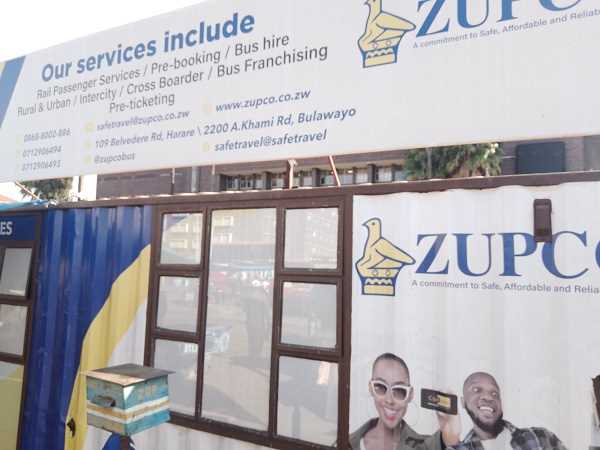Harare | Due to the non-submission of information, the loss-making Zimbabwe United Passenger Company (Zupco), which has been involved in many corruption scandals, has not been able to account for the ZW$3.4 billion in revenue that it earned in metropolitan areas, increasing the possibility of fraud.
Zupco is suffering financial difficulties since most of its buses have vanished from the road after the reintroduction of privately owned commuter omnibuses. The company has come under criticism for serving as a cash cow for politically connected elites.
After a serious transport crisis in May of last year, the parastatal’s activities opened a bag of worms due to accusations that Parliament was prevented from investigating the purchase, ownership, and whereabouts of over 500 vehicles.
As millions of Zimbabweans, especially those living in metropolitan areas, battle every day to go about, President Emmerson Mnangagwa has on many occasions inaugurated buses that are seldom seen on the road other than during Zanu PF events, an enigma that has prompted doubts.
In her report on State-Owned Parastatals for the year ended December 31, 2022, acting Auditor-General (AG) Rheah Kujinga made some interesting discoveries. She found that the parastatal has been having trouble accounting for the money it makes from its operations in urban areas, and there have been signs of other payables being paid late.
“The non-submission of information to support the reported figures prevented me from obtaining sufficient appropriate audit evidence that management had properly accounted for urban revenue amounting to ZW$3.4 billion.” As a result, I was unable to verify the completeness and correctness of the income reported using other methods,” the report said.
Diesel costs ZW$3.4 billion, and operator fees ZW$2.6 billion are included in the cost of sales. The mechanism in place to monitor fuel use and minibus operators’ fees proved ineffective. Because of the condition of the accounting records and the lack of evidence from management to substantiate these expenditures, I was unable to verify these costs. I was unable to carry out any more steps to verify that the cost of sales had been correctly reported.
Due to non-submission of information, the acting AG said she was also unable to get enough audit proof on cash and cash equivalents balances totaling ZW$36 million, making it difficult to verify Zupco’s cash and bank balances.
In addition, Zupco has neglected to keep track of money owing to operators who have leased cars to it; payments made throughout the year were made without invoice support, which sparked suspicions of fraud.
Zupco was leasing mini[1]buses from bus operators, but there were no accounts payable sub-ledgers for them. Consequently, the management failed to provide a list of specific creditors and corroborating papers from other parties. Individual creditor balances and creditor statements were not reconciled. As a result, I was unable to confirm the ZW$749.5 million trade and other payables balance, according to the report.
“During the year, the Company leased out properties and received some rental revenue from such assets. Nonetheless, the Company’s financial statements included these assets as part of property and equipment. This went against IAS 40’s “Investment Property” rules, which state that assets must be treated as investment property. I also saw that the depot managers’ handwritten documents, which lacked sufficient backing, were being used by management to process payments. Consequently, there were differences between the balances reported in the financial statements and the balances in the firm records totaling ZW$241.9 million.
Due to its current obligations surpassing its current assets, Zupco is also functioning dangerously, which the AG said would put the parastatal in danger of economic instability.
“I would like to call attention to the fact that as of December 31, 2020, the Company’s net liability position (current liabilities exceeding current assets) was ZW$312.8 million (2019: ZW$368.1 million). Furthermore, the report states that the Company had an operational loss of ZW$3.8 billion (2019: ZW$2.7 billion).
“These circumstances point to the presence of substantial uncertainty that might seriously impair the Company’s ability to operate as a going concern. Regarding this, my perspective has not changed. The Company’s revenue collecting systems lacked proper controls. The revenue entered into the system and the banking summary were not being reconciled. There were thus differences between the cash that was collected and the cash deposits/banking of ZW$26.48 million.
In addition, the acting AG reported Zupco for lacking proper controls over fuel procurement due to possible fraud, as there were no records to back up the ZW$290 million in diesel purchases.
The study states, “There were also differences between the quantities of diesel received and the quantities of diesel invoiced by suppliers.”
Due to improper waybill completion by customers, which serves as the main source document for invoicing, there were insufficient controls over billing for bus hire clients. Because of this, some waybills lacked crucial information—like the route and the distance traveled—that was necessary for correct billing.
| For Feedback and Comments Please Contact Us On WhatsApp: +27 82 836 5828 |

For comments, Feedback and Opinions do get in touch with our editor on WhatsApp: +44 7949 297606.
